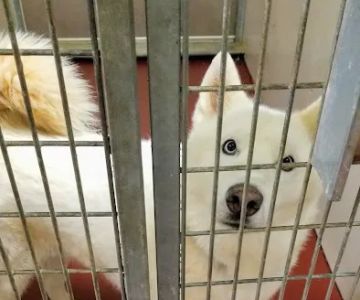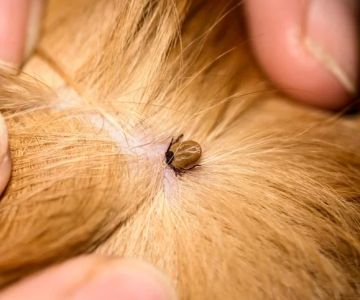The Importance of Proper Dog Nutrition
As pet owners, one of the most essential responsibilities we have is ensuring our dogs receive the right nutrition to lead healthy and fulfilling lives. Proper dog nutrition affects everything from energy levels and coat health to the immune system and overall longevity. However, with so many different food options available, it can be challenging to know what constitutes proper nutrition for your dog. In this article, we will explore the significance of proper dog nutrition and how it can improve your dog’s health and well-being.

845 W Ridge Rd, Gainesville, GA 30501, USA
See Details1. What is Proper Dog Nutrition?
Proper dog nutrition involves providing the right balance of macronutrients, vitamins, and minerals that your dog needs at every stage of their life. Dogs, like humans, need a variety of nutrients to stay healthy. These include protein, fat, carbohydrates, vitamins, and minerals. The specific requirements vary depending on factors like your dog’s breed, age, weight, and activity level.
For instance, puppies require more protein and calories to support their growth and development, while senior dogs may need fewer calories but more fiber to maintain a healthy weight. In addition, active dogs, such as working dogs or those who engage in intense physical activity, may require higher levels of protein and fat to maintain their energy levels.
2. The Role of Protein in Dog Nutrition
Protein is a key component of a dog’s diet, as it supports muscle development, tissue repair, and overall body function. High-quality animal-based proteins, such as chicken, beef, lamb, and fish, are the most beneficial for dogs as they provide essential amino acids that are required for healthy growth and maintenance.
Protein is particularly important for puppies and active dogs, as it supports muscle development and energy. However, too much protein can put strain on a dog’s kidneys, particularly in older dogs or those with kidney disease. It's crucial to ensure that your dog’s diet contains the right amount of protein for their age, breed, and health status.
3. Fats: The Energy Source Your Dog Needs
Fats are another essential nutrient for dogs, providing a concentrated source of energy. They also support the absorption of fat-soluble vitamins like A, D, E, and K, which are crucial for your dog’s overall health. Omega-3 and Omega-6 fatty acids are particularly important for maintaining healthy skin, a shiny coat, and reducing inflammation.
However, like protein, it's important not to overfeed fats. Obesity is a common issue in dogs and can be prevented by feeding them the correct amount of fat based on their age, size, and activity level. Choosing foods with balanced fat content ensures that your dog receives the benefits without the risk of weight gain.
4. Carbohydrates and Fiber: Supporting Digestive Health
While dogs do not have a strict need for carbohydrates, these nutrients provide a valuable source of fiber, which is essential for healthy digestion. Carbohydrates like sweet potatoes, brown rice, and oats are great sources of fiber, which helps regulate bowel movements and supports a healthy gut.
Fiber also plays a role in managing your dog’s weight by making them feel fuller for longer. For dogs prone to obesity, high-fiber diets can help control hunger and prevent overeating. Additionally, fiber helps maintain a healthy gut microbiome, which is important for overall health and immunity.
5. The Impact of Dog Food Quality on Health
The quality of the food you feed your dog has a significant impact on their health. Premium dog foods often contain higher-quality ingredients like real meat, organic vegetables, and fewer fillers or artificial additives. These foods are better suited to provide the optimal balance of nutrients, ensuring that your dog’s diet is not only nutritious but also digestible.
In contrast, lower-quality foods may contain fillers like corn, soy, and by-products, which can lead to nutrient imbalances and digestive issues. Always choose dog food brands that prioritize natural, whole ingredients, and avoid those with excessive artificial preservatives, colors, and flavors.
6. Customizing Your Dog’s Diet for Their Unique Needs
Every dog is different, and their nutritional needs should be personalized based on factors such as breed, age, activity level, and health condition. For instance, a large breed dog may require more calories and a higher amount of certain nutrients like calcium, while a small breed dog may need smaller portions with higher calorie density.
Consulting with your veterinarian is the best way to ensure your dog’s diet is tailored to their specific needs. A vet can help you understand your dog’s unique dietary requirements and suggest appropriate food types, portion sizes, and feeding schedules to maintain their health and well-being.
7. The Importance of Regular Vet Checkups for Optimal Nutrition
Regular checkups with a veterinarian are essential for monitoring your dog’s nutritional needs. As dogs age or go through life stages such as pregnancy, weight loss, or illness, their dietary requirements may change. Your vet can guide you on making necessary dietary adjustments to support your dog’s health at every stage of life.
By maintaining open communication with your veterinarian and addressing any concerns about your dog’s nutrition or weight, you can ensure they remain happy and healthy for years to come. Additionally, regular visits allow your vet to catch early signs of any health issues that might arise due to poor nutrition.
Conclusion: Why Proper Dog Nutrition is Essential
Proper dog nutrition is the foundation of good health. By providing the right balance of protein, fats, carbohydrates, vitamins, and minerals, you help your dog maintain a healthy weight, strong immune system, and optimal energy levels. Understanding the importance of a tailored diet and ensuring that your dog’s nutritional needs are met can prevent a range of health issues and increase their quality of life.
If you’re unsure whether your dog’s diet is meeting their needs, consult with a veterinarian to develop a balanced, nutrient-rich plan that will promote long-term health. At Hidden Brook Veterinary, we offer a wide range of services and products to support your dog’s health and nutritional needs. Visit us today to learn more about how we can help your furry friend thrive!










